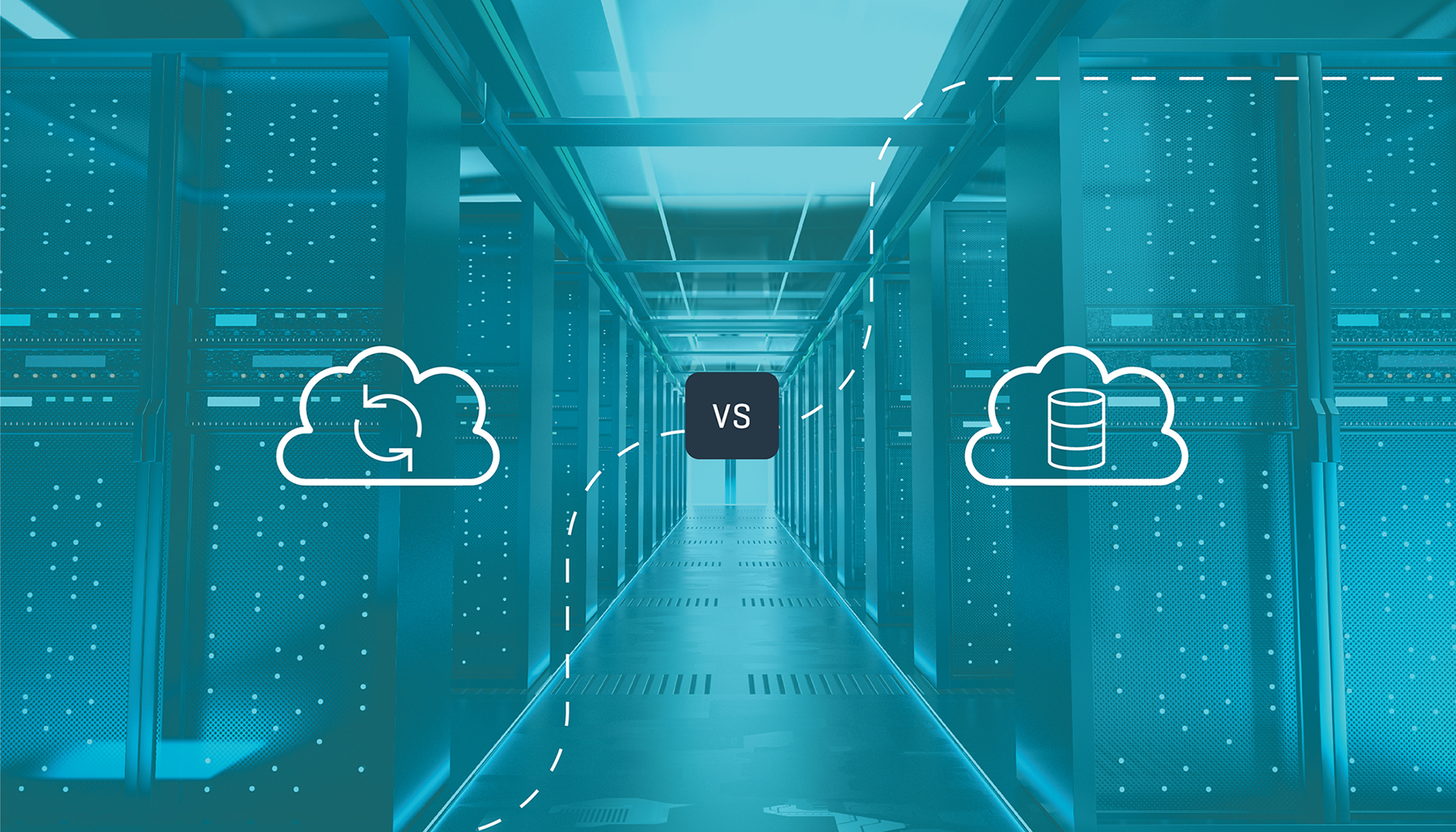Cloud Backup vs Cloud Storage: How to Decide what’s Best for Your Business
Cloud Backup vs Storage: Many people use the two terms ‘cloud backup’ and ‘cloud storage’ interchangeably, not understanding the difference.

Cloud Backup vs Cloud Storage: How to Decide what’s Best for Your Business
Even though cloud services have been around for a while now, many still view the concepts of Cloud Backup vs Cloud Storage as mysterious.
To be clear, Cloud refers to online access and it seems many use the two terms ‘cloud backup’ and ‘cloud storage’ interchangeably, not understanding the difference. Cloud storage is not backup, although some features overlap. Furthermore, using cloud storage as a backup could put your data at risk.
Distinguishing between Cloud Backup vs Cloud Storage
Cloud Backup
Cloud backup is cloud storage’s more robust, sophisticated older sibling. It is an automatic and comprehensive backup of all the data on your physical drives and cloud storage. As we adapt to a more connected world and create increasing amounts of data every second, security risks are crucial to consider.
Cloud Storage
Cloud storage can be accessed anytime, anywhere, enabling cross-device integration. Multiple users can access the same data from different places simultaneously. Cloud storage centralises files across multiple devices to share with friends, family or co-workers.
Reasons to use Secure Cloud Backup
As part of a comprehensive data security strategy, the cloud brings security and automation in addition to or as an alternative to, off-site tape storage. Cloud backup protects large amounts of data retained over time and will help an organisation achieve the 3-2-1 backup rule without needing to purchase and maintain expensive storage at a second site.
-
Ultimate Flexibility – Move data quickly back on-premises or to another cloud platform.
- Unlimited Scalability – Built-in scalability allows our platform to accommodate your data growth, so your information is always protected.
- Data Security – Privacy by design, means that only you and other authorised members of your team have access to your information.
-
Cost Savings – Our offering means you do not need to invest in expensive hardware and software.
TIMG’s Cloud Backup service offers unlimited flexibility, allowing you to have complete control over your data. By isolating your information from your production environment, you can protect it from local device failures, malicious or accidental deletion, data corruption, and ransomware.
Types of Cloud Storage
Today’s cloud storage is flexible, scalable and shareable. Cloud storage is now used to work, collaborate and communicate all over the world.
There are three types of cloud storage – public, private and hybrid.
Public Cloud
You have likely heard of public storage platforms like Dropbox, Google Drive and Microsoft OneDrive. Public clouds host your data on different servers spread across the globe. Although Microsoft, Amazon and Google are responsible for the infrastructure, the Shared Responsibility Model ensures it is still your responsibility to protect your data. TIMG’s backup for public cloud uses Veeam’s cloud-native backup to get a copy of your backups securely offsite so you can have peace of mind that your data is always available.
Private Cloud
The private cloud offers greater security from all types of threats. Hosting takes place either on your own premises or locally in your own city or country. Businesses of all sizes can store and collaborate on confidential data.
Hybrid Cloud
As the name suggests, a hybrid cloud environment is a mix of both public and private clouds. Because private cloud can be expensive to set up and maintain, not all data has to be privately hosted. Businesses create plenty of data that is relatively less important to keep and protect. This information can be stored in public cloud environments. Hybrid cloud packages offer the benefits of both the private and public cloud, giving organisations even greater scalability and cost savings.
Every company has their own unique needs. We recommend seeking counsel from an expert Cloud consultant who can steer you on a path of ultimate data security. It is well worth the consultation and investment. On the flip side, a hastily made wrong move into a cloud purchase can be costly in the long run. Implementation and coordination with your system must be taken into consideration.
The Future of Cloud Backup
When it comes to any third-party cloud, the responsibility is on the customer to secure and protect their data. From accidental deletion to configuration issues, there’s plenty of opportunity to lose your data in the cloud.
- Veeam Backup for GCP delivers Google‑native, fully automated backup and recovery to easily protect, secure and manage all your GCP data.
- Native fully automated AWS backup and disaster recovery to effortlessly protect and manage your Amazon EC2, RDS, EFS and VPC data.
- Veeam Backup for Microsoft Azure provides native backup integration for Microsoft Azure services. In conjunction with Veeam Backup and Replication it enables cross platform backup and restore capabilities, including moving backups to Veeam Cloud Connect repositories to ensure your data is secure and independent of Azure, able to be archived in the format you require (including low-cost Tape-as-a-Services by TIMG, for economical long-term storage of archived backups.)
| Built with simplicity, scalability, savings and security in mind, you can easily eliminate the risk of data loss for your public cloud services while saving big.
 Your browser is very old. It's so old that this site will not
work properly as it should.
Your browser is very old. It's so old that this site will not
work properly as it should.